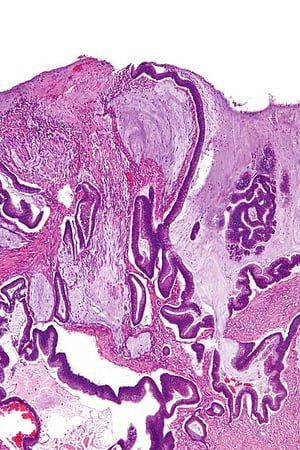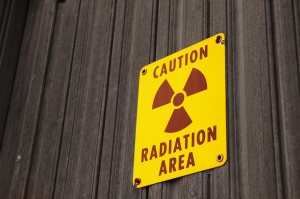 Scientists from UC San Francisco and Oregon Health & Science University (OHSU) have teamed up to tackle acute lymphoblastic leukemia (ALL), a blood cancer that typically affects children from two to five years old.
Scientists from UC San Francisco and Oregon Health & Science University (OHSU) have teamed up to tackle acute lymphoblastic leukemia (ALL), a blood cancer that typically affects children from two to five years old.
Tags: CA, Leukemia, Oregon Health and Science University, cancer research, Oregon, California, Pediatric Cancer Research, 2015, San Francisco, SFVS, BioResearch Product Faire Event, OR, UCSF, OHSU, Portland, UC San Francisco, Biotechnology Vendor Showcase Event
 According to a team of researchers at the University of Pennsylvania, one specific contributor to colon cancer may be a protein called MSI2.
According to a team of researchers at the University of Pennsylvania, one specific contributor to colon cancer may be a protein called MSI2.
Tags: Pennsylvania, University of Pennsylvania, UPenn, cancer research, 2015, Philadelphia, BioResearch Product Faire Event, PA
 The Minnesota Partnership for Biotechnology and Medical Genomics provides annual funding to researchers at the University of Minnesota, the Mayo Clinic, and the state of Minnesota dedicated to bioscience research. Since its founding in 2003, the Minnesota Partnership has worked to strengthen Minnesota's bioresearch fields and help elevate the state as a respected research center. (Image courtesy of Bsstu via Wikimedia Commons).
The Minnesota Partnership for Biotechnology and Medical Genomics provides annual funding to researchers at the University of Minnesota, the Mayo Clinic, and the state of Minnesota dedicated to bioscience research. Since its founding in 2003, the Minnesota Partnership has worked to strengthen Minnesota's bioresearch fields and help elevate the state as a respected research center. (Image courtesy of Bsstu via Wikimedia Commons).
Tags: Midwest, heart disease, cancer research, Rochester, Mayo Clinic, 2015, BioResearch Product Faire Event, MN, UMinn, RMN, Twin Cities
 Georgetown University has recently received funding from the National Institutes of Health in order to advance cancer research, including breakthrough research on cancer cells' behavior and the "Hippo" pathway at the Georgetown Lombardi Comprehensive Cancer Center.
Georgetown University has recently received funding from the National Institutes of Health in order to advance cancer research, including breakthrough research on cancer cells' behavior and the "Hippo" pathway at the Georgetown Lombardi Comprehensive Cancer Center.
Tags: Georgetown University, Washington DC, cancer research, D.C., Cancer, 2015, Geotwn, BioResearch Product Faire Event, Research Funding, Georgetown, NIH funding
 Researchers from the Perelman School of Medicine at the University of Pennsylvania and the Novartis Institutes for BioMedical Research have discovered a potential new method for treating brain cancer using specially engineered immune cells.
Researchers from the Perelman School of Medicine at the University of Pennsylvania and the Novartis Institutes for BioMedical Research have discovered a potential new method for treating brain cancer using specially engineered immune cells.
According to a university press release, personalized immune cells were engineered by UPenn scientists in order to seek out and attack a type of deadly brain cancer, and were found to be both safe and effective at controlling tumor growth in mice that were treated with these modified cells.
Read MoreTags: Pennsylvania, University of Pennsylvania, UPenn, cancer research, brain research, 2015, Philadelphia, BioResearch Product Faire Event, PA, NIH funding
 While not necessarily always the best course of treatment, the majority of men with prostate cancer will go with radiation treatment when confronted with options for treating the potentially deadly disease. Unlike other options, including surgery and chemotherapy, radiation treatment is a relatively “outpatient” procedure - with no anesthetic needed, targeted effectiveness, and relatively few short term side effects.
While not necessarily always the best course of treatment, the majority of men with prostate cancer will go with radiation treatment when confronted with options for treating the potentially deadly disease. Unlike other options, including surgery and chemotherapy, radiation treatment is a relatively “outpatient” procedure - with no anesthetic needed, targeted effectiveness, and relatively few short term side effects.
Tags: CA, University of California Los Angeles, cancer research, California, LA, 2015, LAVS, UCLA, Biotechnology Vendor Showcase Event, Prostate cancer
 Researchers at Thomas Jefferson University may have found the ticket to helping men fight prostate cancer more efficiently and over a longer period of time. While prostate cancer is usually treatable in its early stages, men affected with cancer that has metastasized into their bones have a greatly reduced chance of fighting the deadly disease.
Researchers at Thomas Jefferson University may have found the ticket to helping men fight prostate cancer more efficiently and over a longer period of time. While prostate cancer is usually treatable in its early stages, men affected with cancer that has metastasized into their bones have a greatly reduced chance of fighting the deadly disease.
Read More
Tags: Pennsylvania, Thomas Jefferson University, cancer research, 2015, Philadelphia, BioResearch Product Faire Event, PA, ThomJeff
 USC researchers Heinz-Josef Lenz and Min Yu are hoping to put a stop to cancer…literally. Though differing in methodology and the specific foci of their research, both Lenz and Yu are working towards halting cancer proliferation via their groundbreaking research at USC.
USC researchers Heinz-Josef Lenz and Min Yu are hoping to put a stop to cancer…literally. Though differing in methodology and the specific foci of their research, both Lenz and Yu are working towards halting cancer proliferation via their groundbreaking research at USC.
Tags: CA, Bioresearch, breast cancer, breast cancer research, cancer research, California, USC, 2015, BioResearch Product Faire Event
The Environmental Protection Agency limits the amount of arsenic in U.S. public drinking water to 10 parts per billion (ppb). Water that comes from privately owned wells may contain higher levels of arsenic, especially in areas where the groundwater flows over arsenic-rich bedrock. In a recent study done by UC Berkeley, arsenic was found to potentially show benefits as a cancer fighting agent.
Tags: CA, water, cancer research, Southwest, 2015, Berkeley, BioResearch Product Faire Event, UC Berkeley, UCBerk
The increasing amount of genetic research brings with it the danger of the domino effect. That is, changing one gene can have unforeseen effects on other genes and on health in general. One such gene is found in the human retina, and has long puzzled researchers due to the chain reaction it can set off when deactivated. A team of bioresearchers from the University of Southern California and the nearby Children’s Hospital Los Angeles has finally solved the puzzle and unraveled the domino effect behind this gene.
Read MoreTags: University of Southern California, cancer research, California

